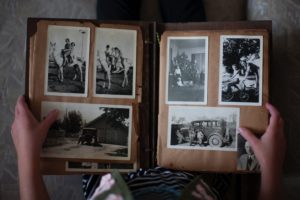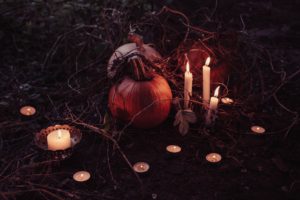Calling Myself Home
I have returned from ten days in Colorado during which my brother and I prepared for and hosted a living estate sale. Together, we emptied, polished and cleaned my mother’s house. Thankfully, she herself was oblivious, as she is in memory care with a hospice team supporting her.
We were successful in our goals, which were to spend time with Mom, hold the sale, and ready the house for renters, who are moving in as I write this.
It doesn’t feel like success, though. Since I arrived back home to Maine, I’ve been groping for what it does feel like, but I couldn’t come up with a clear answer until this morning.
It feels like loss. It feels like a hundred small losses.
Until I came to Maine, Mom and I lived in a small town at the foot of the Spanish Peaks in Southern Colorado. The town lies in a green (sometimes) valley nestled below the Trinchera Mountain Range and the peaks, and something about its geography brings harsh, dry winds that scour the landscape for days, filling the dry air with bits of desiccated landscape. The wind is relentless, without mercy, inescapable.
It was windy for the first several days we were there, and I feel as though I have been staked in the teeth of that wind, like a plastic bag caught on a barbed wire fence, whipped and shredded into ribbons.
I hadn’t realized before that cleaning out an old person’s house is never about just that person. Mom, as the oldest remaining family member, kept papers and pictures regarding known and unknown ancestors, fragments of hidden family stories. She had her mother’s antique armoire, filled with crystal stemware, silver, and china with gold accents. Cupboards and drawers housed ornaments, cut-glass dishes, and jewelry that belonged to my maternal grandmother. Cross stitch, embroidery, and needlepoint done by that same grandmother and my younger self hung on walls throughout the house. She held onto papers and records from my adopted father, deceased for many years. Mom still had his good parka and a pair of his almost unworn boots in her coat closet.
We recycled and shredded pounds of paper, filled and tied countless bags of trash. I packed boxes and baskets and plastic storage containers with bathroom products, cleaning products, dishes, silver, kitchen stuff. I put inexpensive jewelry on a tarnished silver tray for the sale. We used up all the old newspaper for wrapping and I put out an SOS for more, which speedily arrived. I packed boxes to ship home to myself of the few mementos I wanted and took them to the post office, one by one.
All these bits and pieces of lives, of family. A collection of nail clippers and tweezers, from rusty and stiff to new. Hundreds of greeting cards for every occasion. Old letters, report cards, school papers. Boxes and albums full of photos.
In the laundry room, I sorted through products for cleaning, polishing, waxing, staining. I found three open bottles of lemon oil for wood, sticky and congealed. I discarded old sponges, rags, scrub brushes and a broken Swiffer.
I moved Mom into that house. I painted the front and garage doors. I painted the trim around the new windows. I painted the walls in the sun room and hallway.
I felt engulfed by the past, a past I prefer not to dwell on, a past I would like to let rest in peace.
But the wind caught me, pinned me against the thorns and spines of the high desert, and had its way with me.
Is home the place that glues us together? Perhaps. Perhaps that’s why I feel unglued, fragmented, as though I have left pieces of myself in my wake for the last couple of weeks. I inadvertently left a book I was reading on a bench while waiting to meet my brother at Denver International Airport the night I arrived. It was a good book, too. Part of me still sits on that uncomfortable bench, reading, watching reunions, waiting out the slow minutes until the tall form of my brother rises into view on the escalator.
We found pieces of ourselves in that house, my brother and I. I wondered if I looked as lined and shadowed as he did. I wondered if I looked as frayed and torn as I felt. My mother’s fleshless face, fragile skin, and bewildered eyes clawed at my heart.
Part of me is on each of the two planes that carried me across the country, wedged in among strangers, my bag between my feet, my backpack between my knees, while I read and dozed and tried not to think about how uncomfortable I was, tucking my elbows in tightly so as not to intrude upon my neighbors.
Part of me sits at various disheveled, grubby, airport café tables, anonymous, utilitarian, with the hard-used look of all airport eating establishments where the high-priced food tastes of weary miles.
I cried in the shower at Mom’s house, letting the water wash my tears, my hair, my skin cells down the drain and into the wastewater system of my old town.
I found pieces of myself in the faces of my friends, in an outdoor hot tub at dawn with a dear one, in a dance with some of my old dance group, all the more poignant because of the absence of others. I filled my eyes with the majestic Spanish Peaks, looming over the valley. They anchored my life for years.
I found pieces of myself, too, on the dusty interstate highway I traveled hundreds of times during my years in that place. The pronghorn antelope, the giant wind turbines, the miles of yucca, cholla cactus and tumbleweed. The familiar place names and exits. Surely some part of me will eternally drive north and then south along those miles, some ghost, some echo.
Part of me is still standing in the 6:00 a.m. hour-long line for TSA at Denver International, shuffling forward a few feet at a time, surrounded by hundreds of other people, early-morning faces creased, crumpled, yawning, and resigned. Mothers with children. Families. Couples. Young people. Old people. Businesspeople.
I deliberately left a book on the bus that brought me from Boston Logan Airport to Augusta, Maine. I was finished with it and I didn’t want to carry it any more. Perhaps it will be a happy find for some other traveler who will sit where I did, taking their own journey, and their hands will turn the pages I touched, their eyes travel down the printed lines.
I said hello, and then I said good-bye again, not knowing if it was a final good-bye. Hello and good-bye to the memory of the good man who was my adopted father. Hello and good-bye to my mother’s parents and their parents and theirs. Hello and good-bye to my brother. Hello and good-bye to my oldest son, now living in Denver. Hello and good-bye to my friends, to Mom’s friends, to the dusty dirt roads, to the two houses I lived in during my years in that town, to my memories, to the community, the places I shopped, the places I ate, the places I danced and worked and told stories and hiked.
Hello and good-bye to Mom and the caregivers I met and conferenced with.
So many good-byes. Too many good-byes.
And then hello. Hello to my partner. Hello to the initially disbelieving cats, who still zoom around in excitement and welcome days later. Hello to my comfortable bed, my serene room, my kitchen, my giant-sized tea mug, my laptop, my little bathroom, my electric toothbrush.
Yesterday I went out to sit on the porch and read. It was beautiful in the sun; the garden full of exuberant new life. I put my book down and weeded, discovered bulbs coming up, and planted peony roots. Those hours were the first feeling of coming home to myself.
I’ve come home to the simple rhythm of swimming, to the warm, humid, familiar routine of my job in a rehab pool facility. I’ve come home to the keyboard and the page.
I went to the store this morning. I had a list. I drifted up and down the aisles, putting a few things in the cart. I set a book I was finished with on the donation table. It was as though I walked through the little mom-and-pop store in my old place in Colorado and the Safeway in a nearby larger town at the same time. I felt confused. I walked in a dream. I forgot where things were. I couldn’t focus. I left with a small bag of groceries I didn’t feel like I really needed or could use. I came home, made a cup of chai, and used up the milk. I knew I needed more and remembered while I was shopping, but I didn’t buy any …
Too soon to shop. Too soon. I’m not all here yet. The pieces I left behind are still caught in the wind of my passing. I feel as threadbare as Mom’s memory. I wonder if all those pieces will find me again or if the wind has carried them away forever. Do I want all the pieces? Did they slough away because I no longer need them? I can’t tell. I don’t know.
Two things are clear to me. The first is something I read and wrote about somewhere on this blog. The greatest thing we can do to honor those who came before us is to live our lives fully. Grieving fully does not mean living in grief forever. Living fully means living now, not in the past. Living now cannot be accomplished with clutching hands and a clenched heart. Now is not then, nor is it a future that never arrives. Now is now: the sleeping cats, the creamy pink flowers on the magnolia outside the window, the sound of the birds at the feeders, sunlight on the neighbor’s house.
The second is that none of us can live in two places. I transplanted myself to Maine years ago, and have no regrets. My roots are watered here. I belong here. It’s my place now. We need each other. For this day, I will choose to believe all the pieces of myself I need will find me again, will gradually come home to me. The rest I will simply let go, as I’ve let so many things go during the last days and years.
Questions:
- Have you ever been responsible for sorting through a loved one’s possessions and wrapping up their life? What was the hardest part for you?
- What’s the best support you’ve received during a process like this?
- How have you supported others who have needed to manage a loved one’s estate?
- Have you ever felt so emotionally exhausted you couldn’t function? What helped?
Leave a comment below!
To read my fiction, serially published free every week, go here: 




